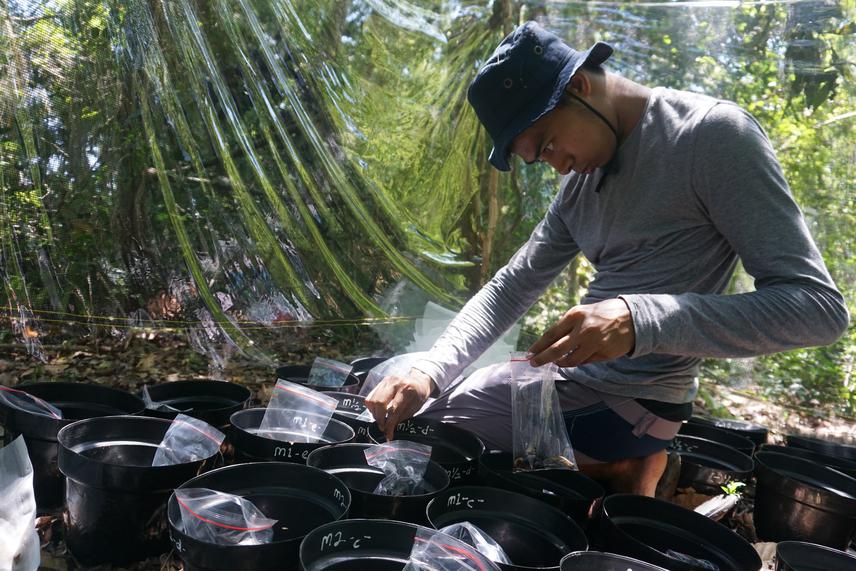Mukhlish Jamal Musa Holle
Designating land as a nature reserve sometimes is not enough to conserve it due to high rates of degradation and land conversion into farmland. On the other hand, these activities generate income for local people. To solve this issue, restoring habitat as well as informing and implementing sustainable farming practices are necessary as conservation initiatives. To make these efforts more efficient, low-cost ‘nature-based solutions’ that involve ecosystem services needs to be considered.
I expect this project to reveal how millipedes, third most diverse group of terrestrial arthropods (Kime & Golovatch, 2000), and other litter arthropods interact in term of mediating ecosystem functions, and the implications for improving agricultural production and ecosystem services in the Northern Sulawesi, Indonesia. The result will be used for promoting sustainable farming outside of the nature reserve and restoring degraded forest within the nature reserve by utilizing ecosystem service provided by millipedes.

Working in the mesocosm experiment.
Designating land as a nature reserve sometimes is not enough to conserve it due to high rates of degradation and land conversion into farmland. On the other hand, these activities generate income for local people. To solve this issue, restoring habitat as well as informing and implementing sustainable farming practices are necessary as conservation initiatives. To make these efforts more efficient, low-cost ‘nature-based solutions’ that involve ecosystem services needs to be considered.
Millipedes as the third most diverse group of terrestrial arthropods (Kime & Golovatch, 2000) have an important functional role in many ecosystems as effective detritivores thus returning nutrients to the soil. Most research on the ecological role of millipedes has taken place in temperate ecosystems (Sierwald & Bond, 2007), with little study of tropical forests, where millipedes reach their maximum diversity (Brewer, Sierwald, & Bond, 2012). Therefore, fundamental studies of millipede ecology and their contributions to ecosystem functions have the potential to provide valuable insights.
Since 2018, I have been researching land-use change impacts on selected ecosystem functions in PNR, Sulawesi, Indonesia. My pilot data reveal that, in contrast to many other tropical sites, millipedes are a conspicuous and numerically dominant component of the macroinvertebrate community. My experiments on quantifying cellulose decomposition revealed a key role for millipedes, with 15% higher cellulose degradation in forest sites, where millipedes are abundant than in more degraded habitats. They also seem to have a significant positive impact on returning nutrients to the soil, indicated by their faecal pellets that cover the soil surface. High abundance and wide distribution of millipedes make PNR an ideal site to build on these novel observations using experimental approaches. I expect my study to reveal how millipedes and other litter arthropods interact in term of mediating ecosystem functions, and the implications for agricultural production and ecosystem services.
The project will consist of three parts, millipede exclusion experiment, seedling planting experiment, and study on decomposition and community variability in edge effects. The result will be used for promoting sustainable farming outside of the nature reserve and restoring degraded forest within the nature reserve by utilizing ecosystem service provided by millipedes.